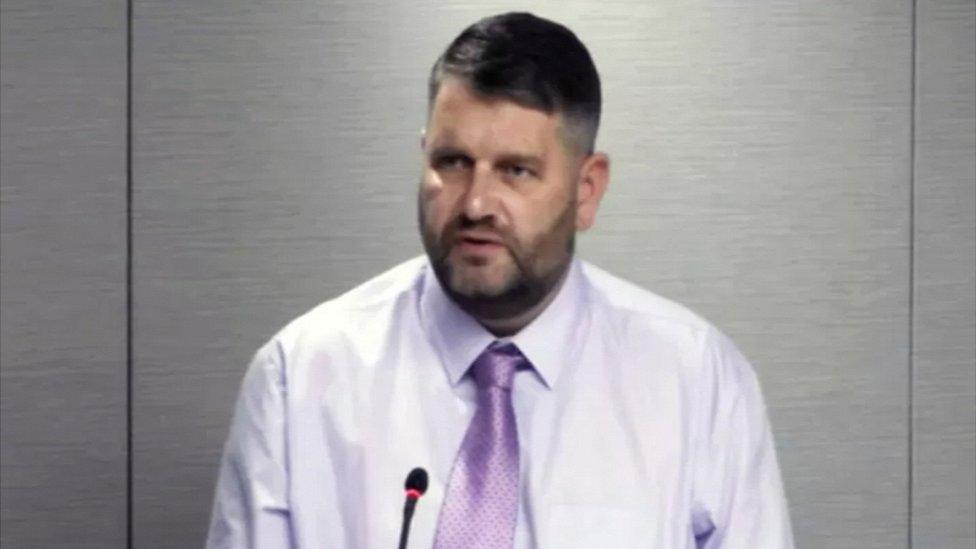Bayoh family's anger is misplaced, claims lawyer
- Published
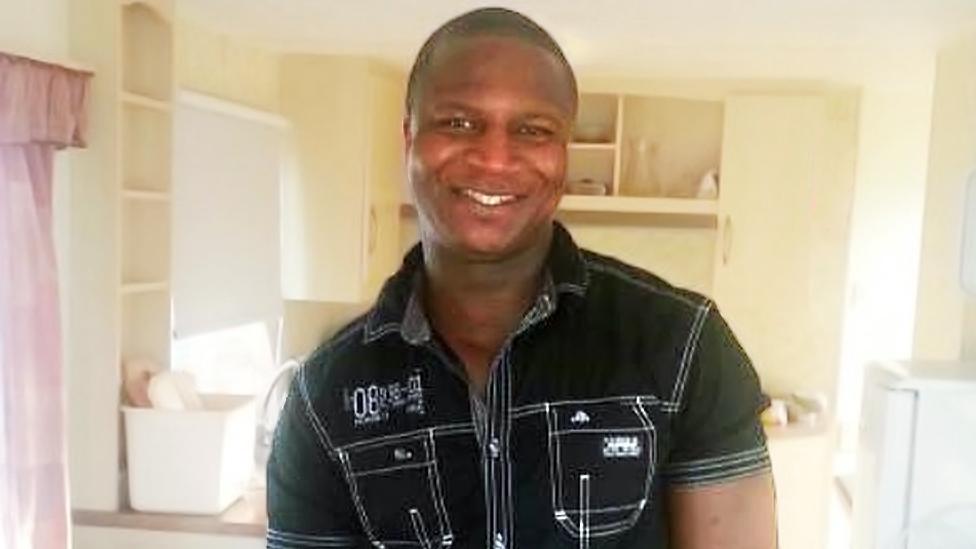
Mr Bayoh had a partner, and was father to two boys
A public inquiry into the death of a black man in police custody has been told he was the author of his own misfortune.
Lawyers acting for officers involved in the incident said Sheku Bayoh's death in Kirkcaldy in 2015 was a tragedy.
But they added that criticism of the officers' actions was wholly unwarranted.
Roddy Dunlop KC said that before Mr Bayoh was restrained, he had taken drugs and placed the public in danger.
Mr Dunlop told the inquiry: "Mr Bayoh, doubtless as a result of self-intoxication, acted in a seriously criminal manner, creating a plain danger to members of the public that absolutely had to be addressed by the police.
"He created the situation that led to his death. He wasn't killed by the police.
"The anger of the family is understandable but it's misplaced."
Mr Bayoh, a trainee gas engineer, died after being restrained by around six police officers.
They were called to Hayfield Road in Kirkcaldy in May 2015 following reports of him acting erratically.
He had been seen with a knife in the town on the day of his death but was not in possession of it when police went to arrest him.
The inquiry is investigating the circumstances of the 31-year-old's death and whether race was a factor.
The sister of Sheku Bayoh said his family had been left "angry" by the lawyers representing police officers who arrested him.
Standing alongside other members of Mr Bayoh's family, Kadi Johnson spoke to the media following the morning's submissions.
Asked about the arguments put forward by Mr Dunlop, who is representing the Scottish Police Federation, and whether the family's anger was misplaced, she said: "We're very angry to hear that.
"Because when they met Sheku he had no knife on him. They are blaming Sheku for his own death, but where was their duty to care?
"They did not care for Sheku when they met him in a state where he was experiencing a mental breakdown. They did not help him there."
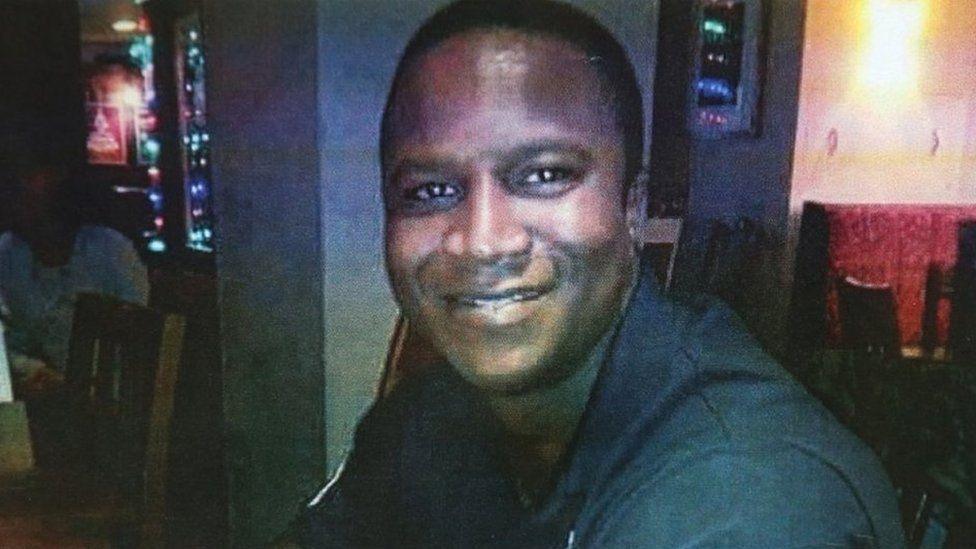
Sheku Bayoh died in police custody in 2015
Brian McConnachie KC is representing PC Alan Paton, who was one of the first officers at the scene.
He said there was "not a shred of evidence" that Mr Bayoh's race had anything to do with the incident.
Mr McConnachie said: "The death of Sheku Bayoh was an unforeseen tragedy.
"But the reality is that, on the evidence put before this inquiry, he was to a very significant extent the author of his own misfortune."
The inquiry had earlier been told that when Mr Bayoh died he had the drugs MDMA and alpha-PVP in his system.
'Mental health crisis'
Claire Mitchell KC, who is representing Mr Bayoh's family, said racial stereotypes were used in relation to the father-of-two soon after his death.
She said that through the media "police sources painted an image of a large black man with stereotypical characteristics of extraordinary strength and dangerousness".
Ms Mitchell continued: "In relation to the incident itself, Sheku was experiencing a mental health crisis and should have been dealt with as a medical emergency."
Referring to previous evidence, she said Mr Bayoh was sprayed with incapacitants three times, struck with a baton and forced to the ground within 50 seconds of the first police car arriving at the scene on Hayfield Road.
She continued: "Sheku was brought to the ground in less than 45 seconds of the first police contact, never to get up again."
She said none of the officers involved had been seriously injured.
Ms Mitchell added: "The process and procedures put in place to allow for assessment of a person and a mental health crisis were ignored. His safety was not considered."
'Expressed regret'
She added that the issue of race "flows as a river through this inquiry", referring to Chief Constable Sir Iain Livingstone's recent admission that Police Scotland is institutionally racist, and said the family was not given the truth in the aftermath of Mr Bayoh's death.
Maria Maguire KC addressed the inquiry on behalf of the chief constable.
She said the chief constable expressed "regret" over the way the family were informed.
The inquiry, before Lord Bracadale, continues.
Related topics
- Published10 May 2023
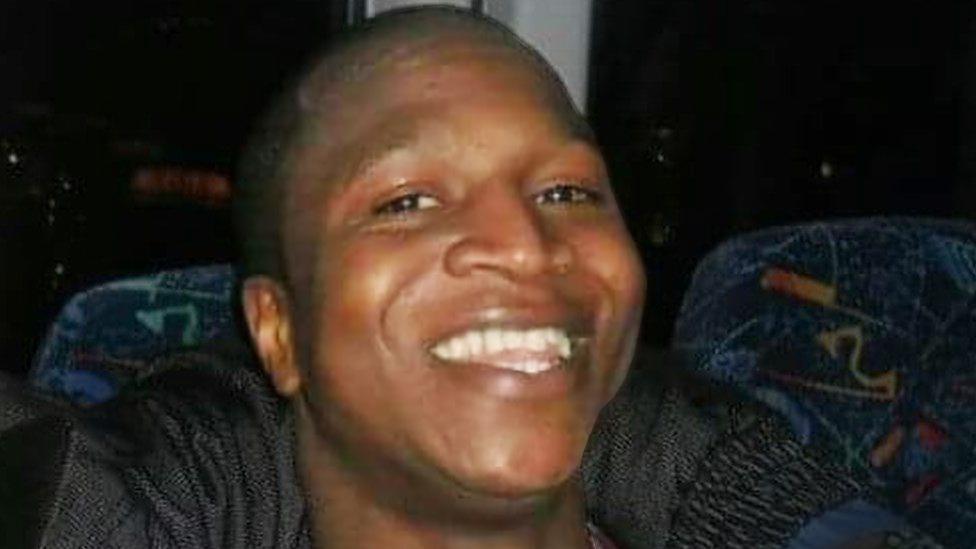
- Published25 May 2023
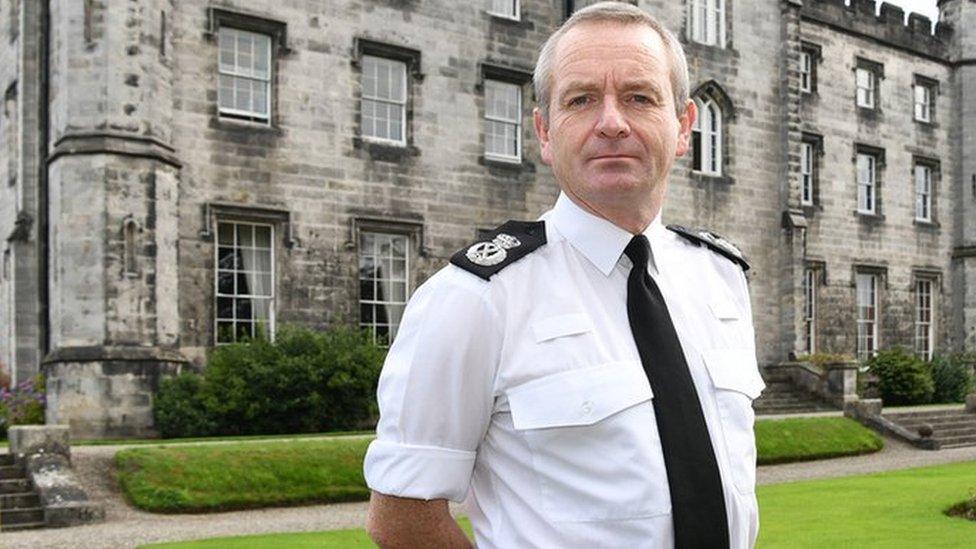
- Published11 May 2023
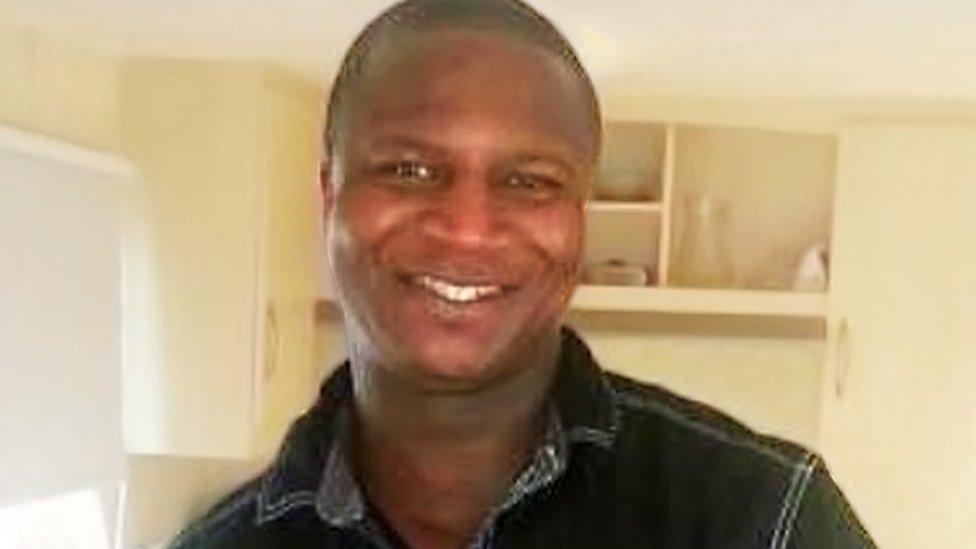
- Published26 May 2023
